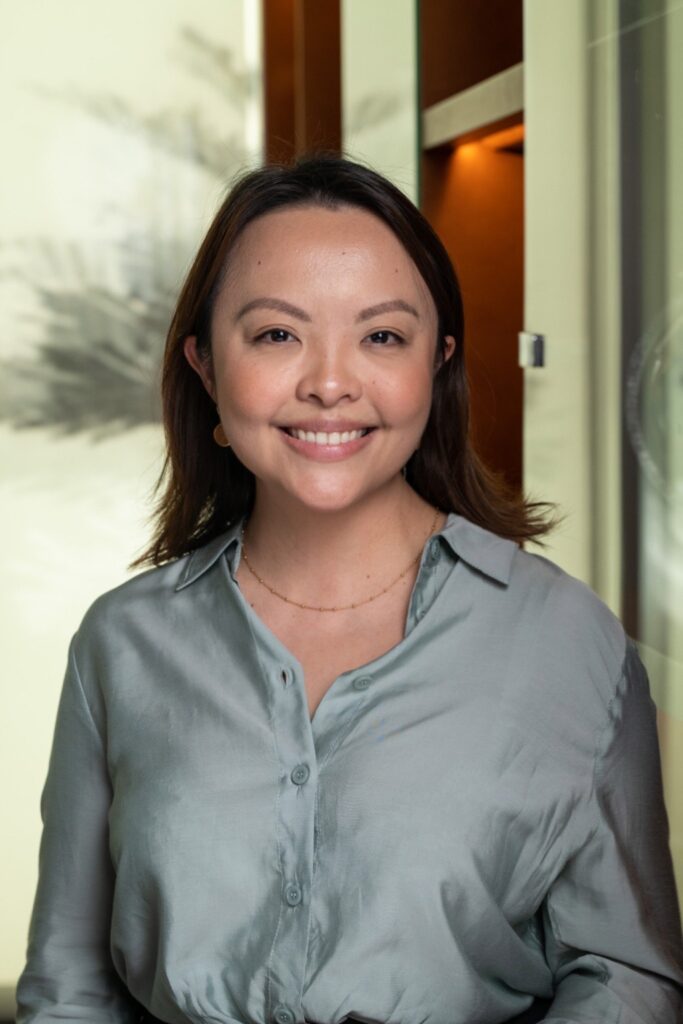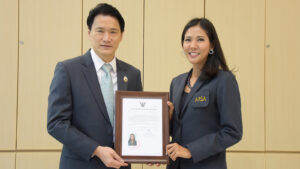Sayoc brings communications experience, seed industry connections and enormous commitment to her new role.
Francine Sayoc, the new executive director with the Asia and Pacific Seed Alliance (APSA), is a familiar face to many in the seed sector. Most recently the communications manager at the International Seed Federation (ISF) and, before that, the group communications manager at East-West Seed International, Sayoc took over top position at APSA in February. Seed World sat down with Sayoc to chat about her goals and ambitions, and about APSA’s role in the Asian and global seed sectors.
“Asia, of course, is a very dynamic seed market and very competitive, very entrepreneurial. I believe the seed sector really has a central role to play in a region where 60% of the global population lives — a big chance for the sector to contribute to food security and sustainable agriculture goals — and where a lot of the food is still produced by smallholder farmers,” she says.
In these early weeks, Sayoc says the biggest challenge is seeing the forest for the trees:
“It’s very easy to get sucked into the minute details of operation but it’s very important as well to take time to look at long term things and the more strategic directions for the organization.”
Being already extremely familiar with both the association and the Asian seed sector, Sayoc has hit the ground running. From a 10,000-foot perspective, her highest goal will be building a strategic roadmap for APSA from 2024 onwards. Key priorities within that will include:
- enhancing APSA’s technical capacity and addressing knowledge gaps to better advocate for the seed sector;
- encouraging the kind of environment where business can thrive, especially via working towards harmonizing policy in the region;
- strengthening partnerships with organizations that have common objectives and that can support APSA’s work;
- matching business with talent to engage youth and draw more skilled and passionate young people into the seed sector; and
- leveraging APSA’s 30th anniversary toward more outreach, while also focusing on appreciating those who have contributed to APSA’s success through its first three decades.
Also critical is member engagement, she adds.

“Part of that is getting to know first the current set of members … and really asking them what APSA is to them and what they expect from the association.”
Of course, effective member engagement also means growing the organization by drawing in new members.
“At the moment, we have more than 500 members. But there are thousands of seed actors in this very huge region. So, we want to be able to reach out to them as well. And I think when we do that, we need to better articulate and define APSA’s value proposition,” she says.
The APSA Congress, this year in Sanya, China from Dec. 2 to 6, is a big draw. However, Sayoc says APSA’s benefits — from advocacy to knowledge sharing to capacity building — extend far beyond the congress’ networking and learning opportunities. She’s keen to showcase those benefits to engage existing members more fully and to inspire and draw in new members.
While APSA is focused first on the Asia Pacific region, the seed sector is increasingly globally connected. Sayoc expects to be working closely with other seed associations around the world to further the entire sector.
“The seed sector, no matter how big it is, it’s also kind of still a family,” she says. “I want to leverage those connections and keep those connections strong and see where we can better streamline our focus and… complement each other’s efforts and actions. I think the fact that I’m from the industry will be very helpful in this.”
As Sayoc digs into her new role, she’s well aware of some of the biggest challenges Asia’s seed sector faces. Challenges remain in efficient seed movement, with various countries operating under different policies, effectively creating non-tariff barriers to international trade. While harmonization efforts are occurring, some policies are moving in exactly the opposite direction.
“We… see some emerging and quite worrisome policies in some countries that prevent cross-border seed movement, and these are often not based on science or a risk-based assessment… It’s important to remember that no country can be fully independent when it comes to seed production. The food system is so, so intricate, and so, so interconnected that isolation doesn’t really protect your food security; in fact, it endangers it. And I think that’s a message that we want to share with especially our public sector partners,” she says.
Science must also lead policy development in regard to plant breeding technologies, she adds.
“Plant breeders need access to a wide range of tools for them to be able to accelerate the pace of innovation and keep up with the changing demands of farmers and consumers and, of course, the pressures of a changing climate… When the regulatory framework is not aligned with business, it’s not just the industry that suffers but investment in innovation, too. And when that happens, R&D slows down and so does the delivery of innovation to farmers. They’re all interconnected, so we need good policies as a foundation of everything so that the seed sector can do what it does best.”
A big part of developing an effective seed system and its associated policy is cultivating respect for intellectual property. Sayoc plans to help APSA promote that in two key ways.
On the regulatory side, Sayoc says it’s about promoting mechanisms that safeguard plant breeders’ innovations, helping assure them a return on the investment of their time and financial resources.
On the industry side, APSA is committed to fighting seed piracy.
“The message here is that, in the business of seed, there are no shortcuts. This is an industry that is rooted in patience and trust and integrity. And these are the only ways for a seed company to succeed and to keep and win the loyalty of farmers,” she says.
To listen to Seed World Group’s entire chat with Francine Sayoc, watch the video above.











